In the dynamic landscape of project management, possessing the right set of skills is the key to unlocking success. Project management skills empower professionals to navigate complexities, drive collaboration, and deliver projects that exceed expectations.
From effective leadership and communication to precise planning and risk management, project managers must possess diverse abilities to ensure project success. Whether you’re a seasoned project manager or aspiring to enter the field, developing and honing these skills is paramount.
This inclusive guide will explore the essential project management skill that paves the path to excellence. So, let’s dive in and discover how mastering these skills can elevate your project management prowess and propel you toward achieving remarkable results.
What is project management?

Project manager skills is the art of overseeing and coordinating various elements of a project to ensure its successful completion. It involves planning, organizing, and executing tasks in order to achieve specific goals within defined parameters, such as time, budget, and resources.
At its core, project management requires effective communication and collaboration skills. Project managers must clearly convey their vision to team members and stakeholders while actively listening to feedback and addressing any concerns or challenges.
Another crucial aspect of project management is strategic thinking. Project managers need to have a forward-thinking mindset that allows them to anticipate potential risks or obstacles before they become major issues.
This involves conducting thorough risk assessments, developing contingency plans, and making sound decisions based on available data.
In addition to communication and strategic thinking abilities, project managers must also possess strong organizational skills.
They are responsible for creating detailed great project plans outlining tasks, timelines, milestones, and resource allocations. Being able to prioritize tasks effectively ensures that projects stay on track without compromising quality or exceeding budgets by honing these essential skills
Category | Skill Name |
Essential Soft Skills for Project Managers | 1. Leadership Skills |
Essential Technical Skills for Project Managers | 1. Project Planning and Scope Management 4. Project Tracking and Reporting |
Additional Project Management Skills | 1. Negotiation and Conflict Management |
Essential Soft Skills for Project Managers
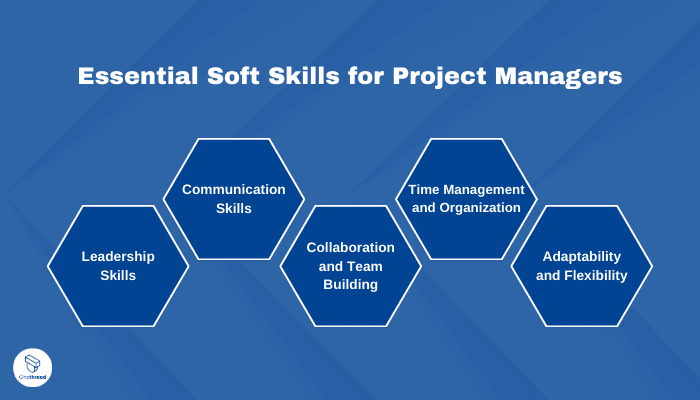
1. Leadership Skills
Successful project managers are effective leaders who inspire and motivate their teams to achieve project goals. They possess a combination of leadership techniques, decision-making prowess, and problem-solving skills.
Project managers must guide their teams through challenges, provide clear direction, and make tough decisions when necessary. Project managers can foster a positive and productive work environment by honing their leadership skills.
2. Communication Skills
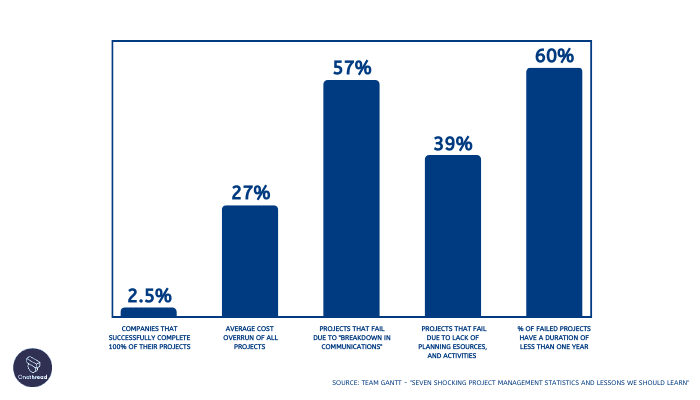
Effective communication is the cornerstone of successful project management. Project managers must excel in verbal and written communication to ensure project requirements are understood, expectations are set, and stakeholders are informed.
They must actively listen to team management members, provide feedback, and document crucial project information. By mastering communication skills, project managers can minimize misunderstandings, resolve conflicts, and maintain strong relationships with stakeholders.
3. Collaboration and Team Building
Project managers are responsible for building and managing high-performing teams. Collaboration and teamwork are essential for successful project execution. Project managers must create an environment that encourages open communication, collaboration, and knowledge sharing.
They should facilitate conflict resolution, promote effective problem-solving, and foster a culture of collaboration. By nurturing effective team dynamics, project managers can enhance productivity, creativity, and project outcomes.
4. Time Management and Organization
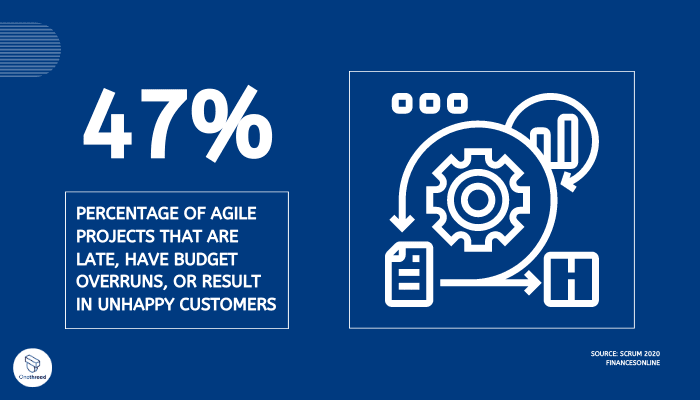
Effective time management and organizational skills are critical for project managers to keep projects on track and meet deadlines. Project managers must prioritize tasks, set realistic goals, and manage resources efficiently.
They should create project schedules, allocate resources effectively, and identify and manage dependencies. By mastering time management and organization, project managers can optimize productivity, minimize delays, and ensure project success.
5. Adaptability and Flexibility
Adaptability is key to project management success in today’s dynamic business landscape. Project managers must embrace change, navigate uncertainties, and adapt their plans and approaches as needed. Agile project management methodologies provide frameworks for flexibility and iterative development.
Project managers should cultivate resilience, encourage innovation, and adapt to changing project requirements. By embracing adaptability and flexibility, project managers can navigate challenges and deliver successful outcomes.
Essential Technical Skills for Project Managers
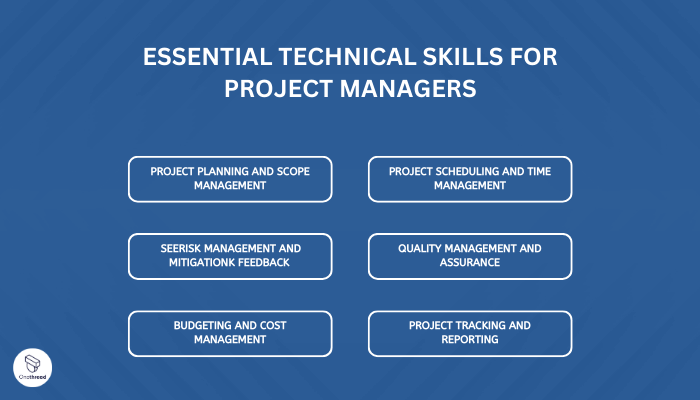
1. Project Planning and Scope Management
Project planning involves defining project goals, objectives, and deliverables. Project managers must develop comprehensive project plans, create work breakdown structures (WBS), and establish effective scope management processes.
They should identify project requirements, set clear expectations, and control changes to project scope. By mastering project planning and scope management, project managers can lay a solid foundation for project success.
2. Risk Management and Mitigation
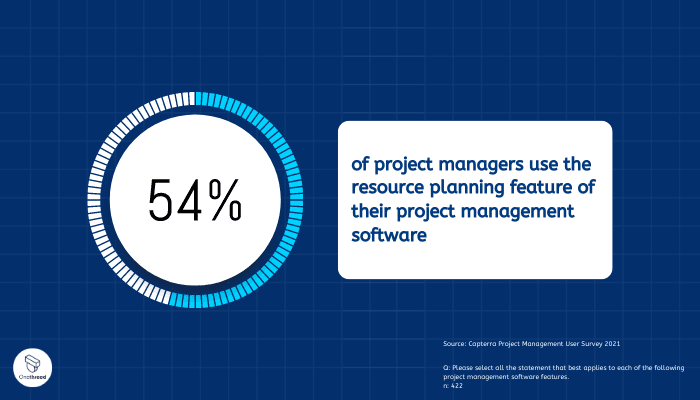
Effective risk management is crucial to mitigate potential issues and ensure project success. Project managers should identify and assess project risks, develop risk response strategies, and implement risk mitigation measures.
They should establish risk monitoring and control mechanisms to identify and address risks proactively. By effectively managing risks, project managers can minimize project disruptions and enhance overall project outcomes.
3. Budgeting and Cost Management
Project managers must possess budgeting and cost management skills to ensure projects are delivered within approved budgets. They should estimate project costs accurately, allocate budgets effectively, and track expenses throughout the project lifecycle.
Project managers should analyze financial reports, identify cost-saving opportunities, and optimize resource utilization. By mastering budgeting and cost management, project managers can deliver projects on budget and maximize return on investment.
4. Project Scheduling and Time Management
Developing comprehensive project schedules and managing time effectively are vital skills for project managers. They should create realistic project timelines, allocate resources appropriately, and optimize project schedules.
Project managers should identify critical paths, manage dependencies, and proactively address schedule risks. Project managers can ensure project milestones are achieved on time by mastering project scheduling and time management.
5. Quality Management and Assurance
Quality management is essential to deliver projects that meet or exceed stakeholder expectations. Project managers should establish quality standards and metrics, implement quality assurance processes and inspections, and drive continuous improvement initiatives.
They should monitor project quality, identify areas for improvement, and apply lessons learned to future projects. Project managers can deliver projects with superior outcomes by prioritizing quality management and assurance.
6. Project Tracking and Reporting
Monitoring project progress, tracking key performance indicators (KPIs), and reporting project status are crucial project management skills. Project managers should implement effective project tracking mechanisms, collect accurate data, and generate insightful reports.
They should conduct status meetings, communicate progress to stakeholders, and address any deviations from project plans. Project managers can ensure transparency, foster stakeholder confidence, and facilitate timely decision-making by mastering project tracking and reporting.
Additional Project Management Skills
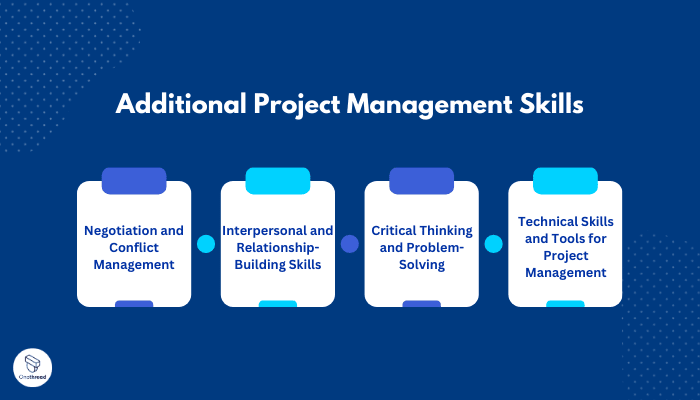
1. Negotiation and Conflict Management
Project managers often encounter negotiation situations and conflicts during project execution. They should possess effective negotiation strategies, conflict resolution skills, and techniques for managing disputes.
Project managers should balance stakeholder interests, find win-win solutions, and maintain positive working relationships. Project managers can navigate challenging situations and promote project harmony by mastering negotiation and conflict management skills.
2. Interpersonal and Relationship-Building Skills
Interpersonal skills and relationship-building are crucial for project managers to engage stakeholders effectively. They should build trust, establish rapport, and foster positive relationships with team members, clients, and other stakeholders.
Project managers should excel in stakeholder management, engagement, and effective networking. By nurturing strong interpersonal connections, project managers can enhance collaboration, obtain stakeholder support, and drive project success.
3. Critical Thinking and Problem-Solving
Project managers must possess strong critical thinking and problem-solving abilities to overcome project challenges. They should analyze complex situations, make informed decisions, and apply problem-solving techniques.
Project managers should use analytical thinking, root cause analysis, and troubleshooting strategies to address project issues effectively. Project managers can overcome obstacles and achieve project objectives by leveraging critical thinking and problem-solving skills.
4. Technical Skills and Tools for Project Management
Project managers should be proficient in using project management software, data science analysis tools, and emerging technologies relevant to their projects. They should stay updated with the latest advancements and leverage appropriate tools to enhance project efficiency.
Project managers should understand the technical aspects of their projects and possess the necessary domain knowledge. By continuously improving their technical skills, project managers can leverage technology to optimize project outcomes.
Conclusion
Mastering essential project management skills is crucial for project managers to deliver successful projects and drive organizational success.
Continuous learning and development are key to staying relevant in an ever-evolving professional landscape. As you enhance your project management skill, you become an invaluable asset to any organization, capable of delivering projects with excellence.
Remember, project management skill are not solely limited to theoretical knowledge but require practical application and hands-on experience. Onethread offers a range of resources, including training programs, certification courses, and project management software, to help you develop and enhance your project management skill.
FAQs
1. What are the essential project management skills?
Essential project management skill include effective communication, leadership, organization, problem-solving, and time management. These popular skills help project managers successfully plan, execute, and deliver projects on time and within budget.
2. How can I improve my project management skills?
Improving your project management skill requires continuous learning and practice. Consider taking courses or certifications in project management methodologies such as Agile or Six Sigma. Additionally, seek opportunities to lead projects or collaborate with experienced professionals to gain hands-on experience.
3. What tools can aid in project management?
Various tools can aid in project management, such as task tracking software like Trello or Asana, for managing tasks and deadlines. Project planning tools like Microsoft Project or Gantt charts can assist with visualizing timelines and allocating resources efficiently.
4. How do you handle conflicts within a team during a project?
Handling conflicts within a team requires effective communication and conflict-resolution strategies. Encourage open dialogue among team members to address any issues promptly. Act as a mediator if necessary to find common ground and facilitate compromise between conflicting parties.
5. How do you manage scope creep in a project?
To manage scope creep effectively, establish clear objectives at the beginning of the project and communicate them clearly to the stakeholders involved. Regularly review the progress against these objectives to identify any deviations early on. Prioritize changes based on their impact on the project’s overall goals before implementing them.
